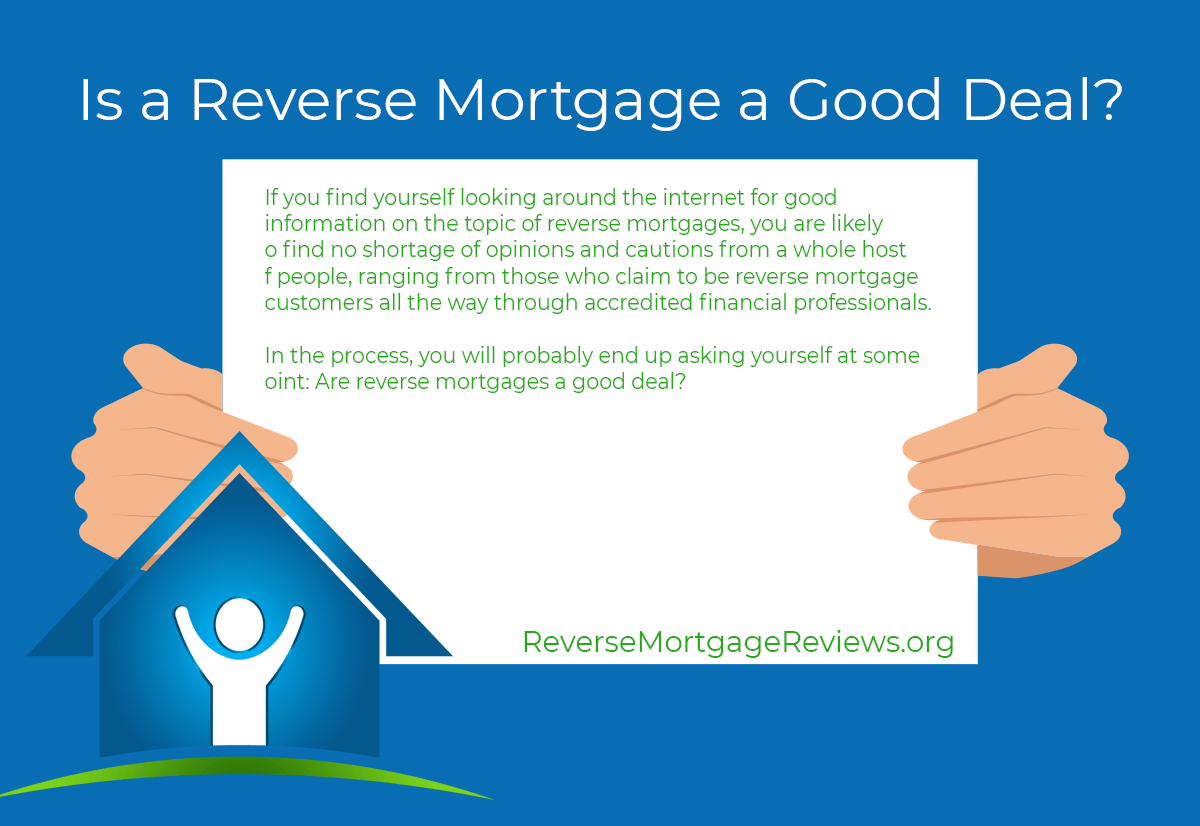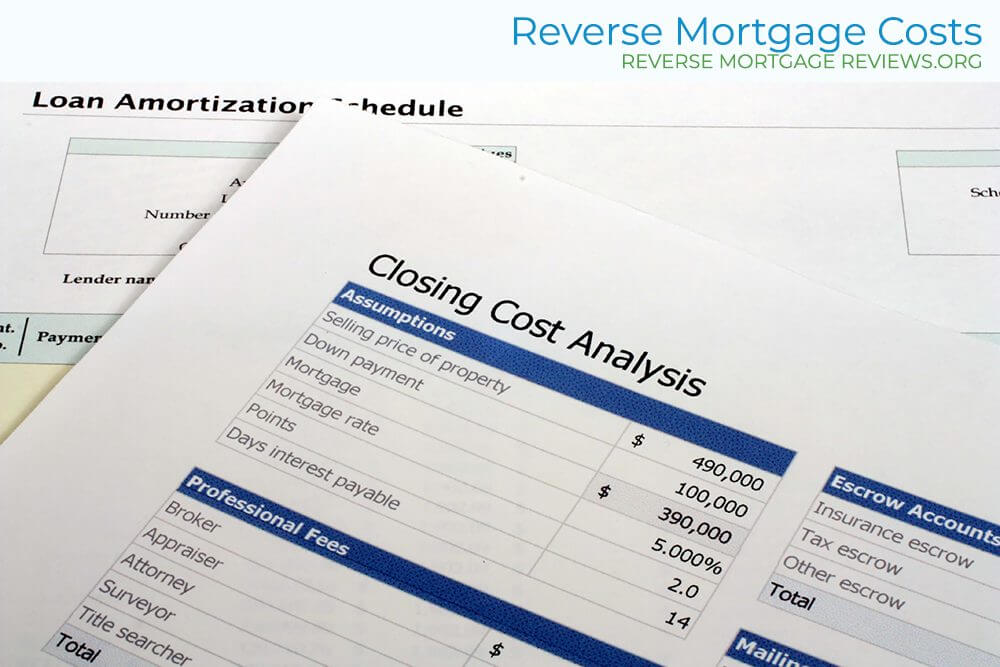Reverse Mortgages a Good Idea? Consider The Costs!
Mike Branson Jr. – Author
Mike Branson Jr. has 25 years of experience in the mortgage banking industry. He has devoted the past 19 years to reverse mortgages exclusively. Mike has worked in several aspects of the Mortgage industry, including Loan Origination, Underwriting, and Management.In this article, you will learn:
- What Will a Reverse Mortgage Cost Me?
- What Are the Associated Fees? How to Find More Information
If you find yourself looking around the internet for good information on the topic of reverse mortgages, you are likely to find no shortage of opinions and cautions from a whole host of people, ranging from those who claim to be reverse mortgage customers all the way through accredited financial professionals.
In the process, you will probably end up asking yourself at some point: Are reverse mortgages a good deal?�
You are likely to find a whole host of opinions on this, too. The truth about reverse mortgages is far more nuanced than a simple yes or no answer. Rather, it depends on the person and his or her own financial situation. When examining the deal prospect of a reverse mortgage as it relates to you, the only person who can definitively answer questions about your own financial realities is, well, you.
Maybe your own situation can fit in with the possible solutions the reverse mortgage tool can present to you, or maybe you would be better served by something else. The reality is that like any tool in a toolbox, the right one is needed for the right job.
This also affects whether a reverse mortgage can qualify for you as a good deal, because like any financial product, there are certain costs to keep in mind. What you must ask yourself when looking at them, though, is whether those costs are worth it in comparison to the financial benefits you might be able to get by paying them, again, based on your own financial situation.
What Will a Reverse Mortgage Cost Me?
One of the often-cited complaints that critics levy toward reverse mortgages is that they have high upfront costs that can diminish some of the proceeds a borrower can get from the loan.
A key element concerning the upfront costs, though, is one of comparison: what are you comparing the costs of getting a reverse mortgage, and will you be more financially stable with a reverse mortgage compared to not having one?
Any financial expert will tell you that all products geared toward offering cash flow in retirement come with their own costs, whether in the form of interest or taxes and fees.
When examining your own financial situation with your own collection of trusted advisors, the primary thing that needs to be determined is whether the costs associated with a reverse mortgage will unlock potentially new benefits for you in your own financial situation.
The reverse mortgage is a product that acts as a�non-recourse loan�with competitive rates and requires no monthly principal and interest repayment obligation.
How much would be having something like that at your disposal be worth to you, in comparison to other options you can potentially explore? That�s a question that you and those closest to you should answer first before engaging in a transaction.
�
What Are the Associated Fees?
The associated fees with a reverse mortgage transaction include:
Origination fee
This fee covers the operating expenses of the lender that will be distributing your loan proceeds, which is associated with the origination of the loan.
A lender can charge 2% of the first $200,000 of your home�s value plus an additional 1% of the amount over $200,000, whichever is higher. Typically, the origination fees from a Home Equity Conversion Mortgage (HECM) are capped at $6,000.
Be sure to ask your lender for details about the origination fee since some of them can reduce or even waive the origination fees on certain products.
Mortgage Insurance Premium (MIP)
This mortgage insurance fee is paid by the borrower to the Federal Housing Administration (FHA), and is a key element of a reverse mortgage because of the protections it can provide for both the lender and the borrower in a reverse mortgage transaction.
If something happens to the company that services the loan and they can no longer meet the obligations of the servicing arrangement, then the FHA will step in to take over responsibility for the loan.
This can provide the borrower with continued access to any loan proceeds that remain to be dispersed in the transaction.
Appraisal
In a reverse mortgage, a property appraiser is responsible for determining the market value of your home, which is a key factor in determining what your loan proceeds will look like.
While there can be regional variation in appraisal fees as well as affects based on the size and type of the property, they typically average out to around $450.
The appraisal fee cannot be paid with the loan proceeds and is typically made in cash before the loan arrangement is made.
In some rare instances, a second property appraisal may be required, speak to your loan officer for more details on how this could potentially affect you.
Closing Costs
Among the many different types of closing costs associated with the loan, there can be a credit report fee, a flood certification fee (based on the location of the property), Escrow fee, document preparation fee to finalize closing papers, a recording fee with your county�s recording office, a courier fee if some documents need to be mailed overnight, Title insurance, an inspection for pests, and a surveying fee.
Speak to your loan officer for more details on which fees may affect your specific transaction.
Servicing Fee, Set-Aside
The service fee set-aside is deducted from the available loan proceeds at closing, preemptively to cover the costs of the loan servicer in making sure that the loan is serviced properly.
While the set-aside can amount to thousands of dollars, some lenders have either eliminated the servicing set-aside or included it in the interest rate calculation.
It is worth noting that this is typically not listed as a charge, but rather as a calculation.
Interest Rates
You are only charged interest on the proceeds that you receive, not on the full value of the loan. The interest you pay is also compounding, which means that you pay ongoing interest on the principal amount, plus whatever interest is accumulated.
Finding More Information
It�s also a good idea to talk with your trusted friends and family while deciding if a reverse mortgage is a good fit for your personal financial situation. That way, they can advise you on what your best path forward could be in funding your retirement years.
Every individual borrower can have a very different set of guiding circumstances. Those closest to you can probably offer more personalized advice before you sign on the dotted line.
Summary
When researching a reverse mortgage, it�s important to speak to your family and trusted financial advisor to weigh both the pros and cons. Learn more about how a HECM loan might be right for you by contacting one of our top reverse mortgage lenders,�or check your eligibility with our�free reverse mortgage calculator.
|
No Comments on “Reverse Mortgages a Good Idea? Consider The Costs!”
|



